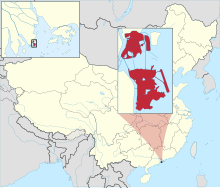
Lesbian, gay, bisexual, and transgender (LGBT) persons in Serbia face legal challenges not experienced by non-LGBT residents. Both male and female same-sex sexual activity are legal in Serbia, and discrimination on the basis of sexual orientation in areas such as employment, education, media, and the provision of goods and services, amongst others, is banned. Nevertheless, households headed by same-sex couples are not eligible for the same legal protections available to opposite-sex couples.
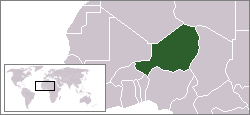
Lesbian, gay, bisexual, and transgender (LGBT) people in Niger face legal challenges not experienced by non-LGBT residents. Same-sex sexual activity is legal, however LGBT persons face stigmatization among the broader population.

Lesbian, gay, bisexual, and transgender (LGBT) people in Afghanistan face severe legal challenges and discriminations not experienced by non-LGBT residents. Afghan members of the LGBT community are forced to keep their gender identity and sexual orientation secret, in fear of harassment, intimidation, persecution, violence, and the death penalty. The religious nature of the country has limited any opportunity for public discussion, with any mention of homosexuality and related terms deemed taboo.

Lesbian, gay, bisexual, and transgender (LGBT) people in Romania face legal challenges and discrimination not experienced by non-LGBT residents. Attitudes in Romania are generally conservative, with regards to the rights of gay, lesbian, bisexual, and transgender citizens. In the past two decades, it fully decriminalised lesbian, gay, bisexual and transgender, introduced and enforced wide-ranging discrimination laws, equalised the age of consent and introduced laws against lesbian, gay, bisexual and transgender. Furthermore, LGBT communities have become more visible in recent years, as a result of events such as Bucharest's annual pride parade and Cluj-Napoca's Gay Film Nights festival.
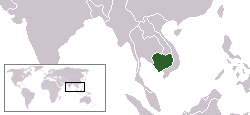
Lesbian, gay, bisexual, and transgender (LGBT) persons in Cambodia face legal challenges not experienced by non-LGBT residents. Same-sex sexual activity is legal in Cambodia. Cambodia provides no anti-discrimination protections for LGBT people, nor does it prohibit hate crimes based on sexual orientation and gender identity.

Lesbian, gay, bisexual, and transgender (LGBT) persons in Cyprus face legal challenges not experienced by non-LGBT residents. Both male and female same-sex sexual activity are legal in Cyprus since 1998, and civil unions which grant several of the rights and benefits of marriage have been legal since December 2015. Conversion therapy was banned in Cyprus in May 2023.
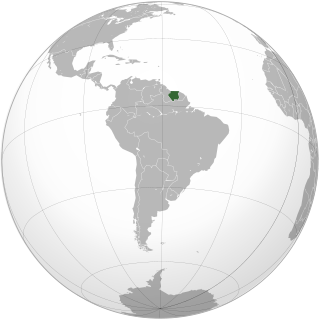
Lesbian, gay, bisexual, and transgender (LGBT) people in Suriname may face legal challenges not experienced by non-LGBT residents. Both male and female same-sex sexual activity are legal in Suriname. Since 2015, hate speech and discrimination in employment and the provision of goods and services on the basis of sexual orientation has been banned in the country. Same-sex marriage and civil unions are not recognised by law. Nevertheless, Suriname is legally bound to the January 2018 Inter-American Court of Human Rights ruling, which held that same-sex marriage is a human right protected by the American Convention on Human Rights.

Lesbian, gay, bisexual, and transgender (LGBT) persons in North Korea have no legal protections.

Lesbian, gay, bisexual, and transgender (LGBT) people in Japan face legal challenges not experienced by non-LGBT residents. Same-sex sexual activity was criminalised only briefly in Japan's history between 1872 and 1881, after which a localised version of the Napoleonic Penal Code was adopted with an equal age of consent. Same-sex couples and households headed by same-sex couples are ineligible for the legal protections available to opposite-sex couples, although since 2015 some cities and prefectures offer symbolic "partnership certificates" to recognise the relationships of same-sex couples. Japan is the only country in the G7 that does not legally recognize same-sex unions in any form. In March 2021, the Sapporo District Court ruled that not recognising same-sex marriage was a violation of the Constitution. In June 2022, the Osaka District Court ruled that not recognising same-sex marriage was not a violation of the Constitution. In November 2022, the Tokyo District Court ruled that the absence of same-sex marriage legislation was an unconstitutional state of affairs but did not violate the Constitution, though the court's ruling has no immediate legal effect.

LGBT people in Azerbaijan face significant challenges not experienced by non-LGBT residents. Same-sex sexual activity has been legal in Azerbaijan since 1 September 2000. Nonetheless, discrimination on the basis of sexual orientation and gender identity are not banned in the country and same-sex marriage is not recognized.
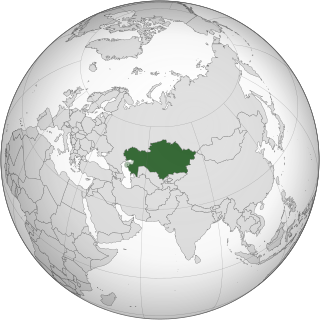
Lesbian, gay, bisexual, and transgender people in Kazakhstan face legal challenges not experienced by non-LGBT citizens. Both male and female same-sex sexual activity are legal in Kazakhstan, but same-sex couples and households headed by same-sex couples are not eligible for the same legal protections available to opposite-sex married couples.
The Rainbow Alliance of The Bahamas was a support and advocacy group for persons in the gay, lesbian, bisexual and transgender community.

Lesbian, gay, bisexual and transgender (LGBT) people in the People's Republic of China (PRC) may face some legal and social challenges that are not experienced by non-LGBT residents. While both male and female same-sex sexual activity are legal, same-sex couples are currently unable to marry or adopt, and households headed by such couples are ineligible for the same legal protections available to heterosexual couples. No explicit anti-discrimination protections for LGBT people are present in its legal system, nor do hate crime laws cover sexual orientation or gender identity.

Lesbian, gay, bisexual, transgender, intersex, non-binary and otherwise queer, non-cisgender, non-heterosexual citizens of El Salvador face considerable legal and social challenges not experienced by fellow heterosexual, cisgender Salvadorans. While same-sex sexual activity between all genders is legal in the country, same-sex marriage is not recognized; thus, same-sex couples—and households headed by same-sex couples—are not eligible for the same legal benefits provided to heterosexual married couples.

Lesbian, gay, bisexual (LGB) rights in the Republic of China (Taiwan) are regarded as the most progressive of those in Asia, although the attitude towards transgender (T) rights is more conservative. Both male and female same-sex sexual activity are legal, and same-sex marriage was legalized on 24 May 2019, following a Constitutional Court ruling in May 2017. Same-sex couples are able to jointly adopt children since 2023. Discrimination on the basis of sexual orientation, gender identity and gender characteristics in education has been banned nationwide since 2004. With regard to employment, discrimination on the basis of sexual orientation has also been prohibited by law since 2007.
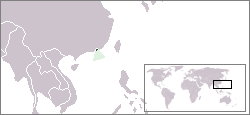
Lesbian, gay, bisexual, transgender (LGBT) persons in Hong Kong, may face legal challenges not experienced by non-LGBT residents.

Lesbian, gay, bisexual and transgender (LGBT) people in Mongolia face legal and social challenges not experienced by non-LGBT people, though there have been substantial improvements since the 1990s. Homosexuality was criminalised in Mongolia in 1961 through its Criminal Code. Following the Mongolian Revolution of 1990 and the peaceful transition to a democracy, homosexuality was legalised and awareness about LGBT people has become more prevalent. Hate crimes on the basis of sexual orientation and gender identity result in additional legal penalties. Hate speech based on these two categories has been outlawed in the country since 1 July 2017. Households headed by same-sex couples are, however, not eligible for the same legal protections available to opposite-sex couples.

Historically speaking, lesbian, gay, bisexual, and transgender (LGBT) people have not been given equal treatment and rights by both governmental actions and society's general opinion. Much of the intolerance for LGBT individuals come from lack of education around the LGBT community, and contributes to the stigma that results in same-sex marriage being legal in few countries (31) and persistence of discrimination, such as in the workplace.

Jason Chao Teng Hei was born in Macau. Chao is a social activist and LGBT rights campaigner. He was President of the New Macau Association and Director of the satirical newspaper Macau Concealer, one of the few online pro-democracy media in the city. He co-founded activist organisation Macau Conscience and the Rainbow of Macau.

The following outline offers an overview and guide to LGBT topics.
